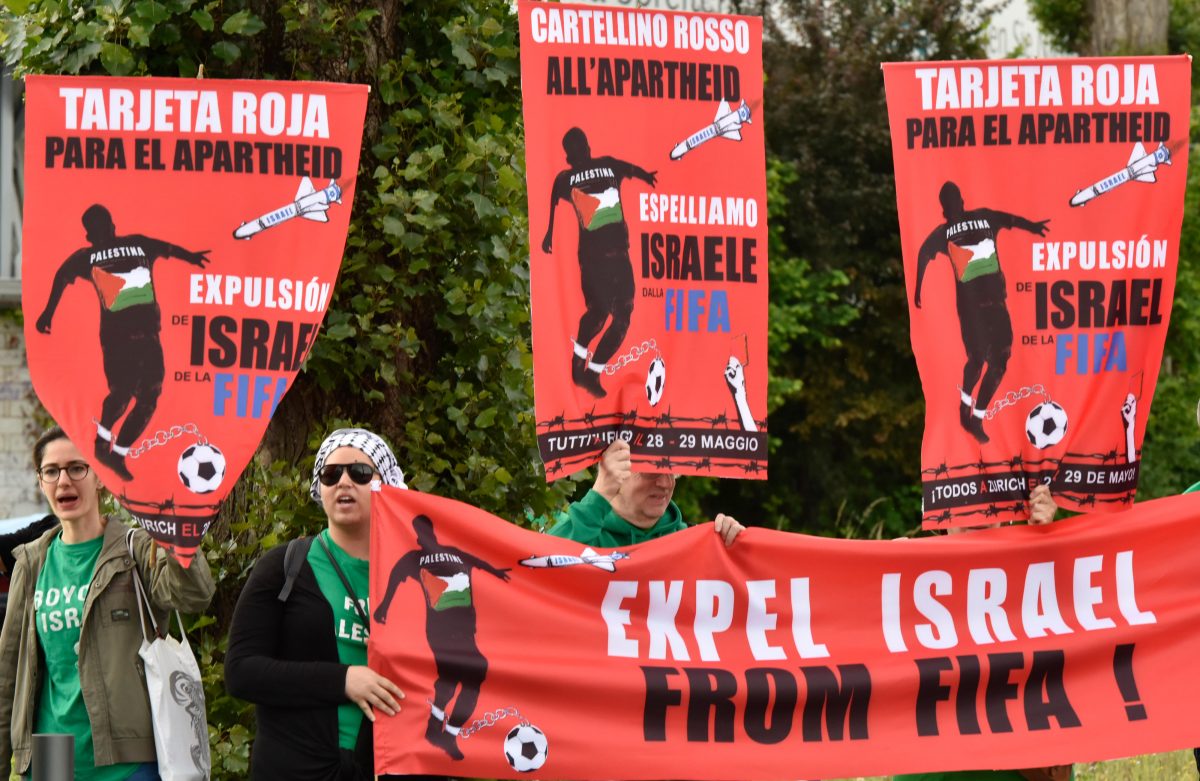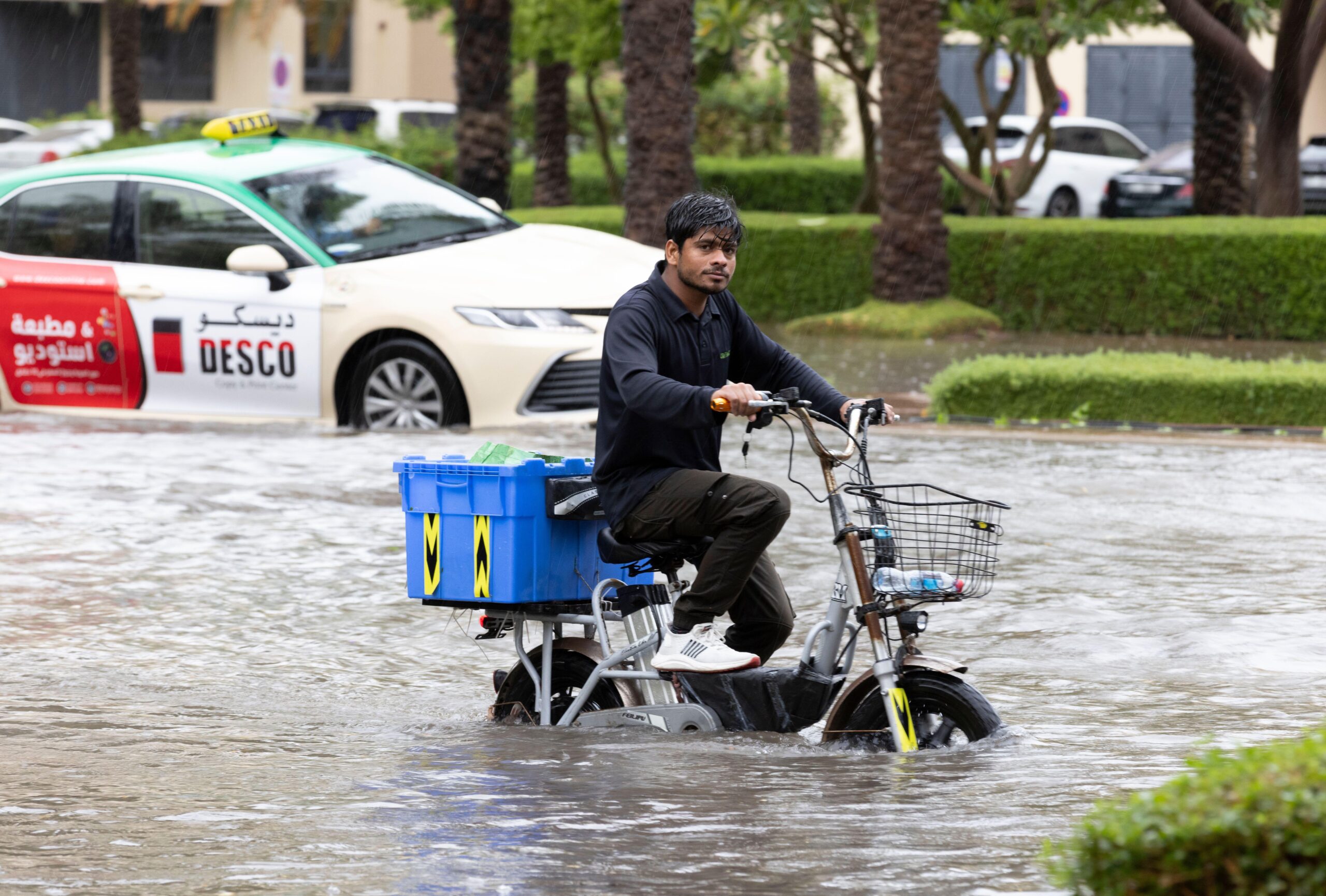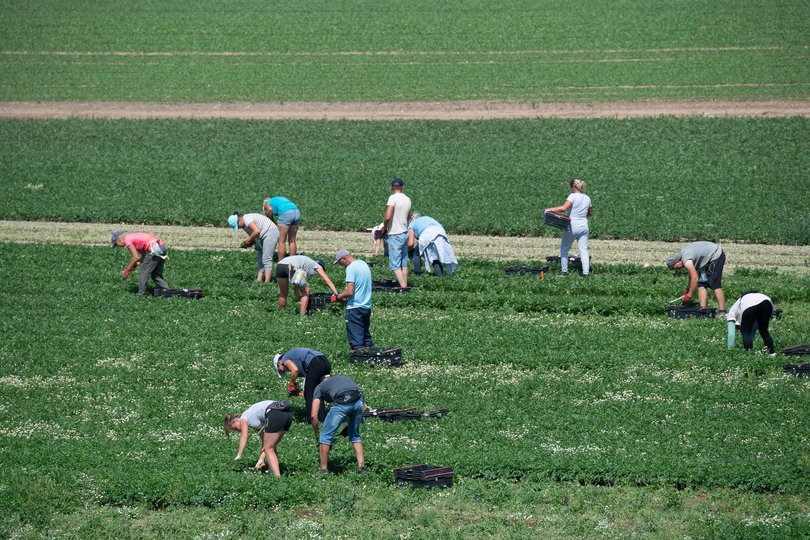
In an article published on the Asser International Sports Law Blog, FairSquare director Nick McGeehan argues that sport’s responses to Russia and Israel show how the absence of rules makes FIFA and the IOC tools of the global north.
Boycotts, divestments and sanctions are each controversial and contentious in their own right, but when combined under the right conditions, they have explosive potential. BBC football presenter Gary Lineker found this out to his cost when he retweeted a call from Palestine’s BDS movement to suspend Israel from FIFA and the International Olympic Committee (IOC) until such time the Israeli state ends what they called “the crime of genocide it is perpetrating in Gaza” and its occupation of Palestinian territory. Lineker quickly deleted his retweet but not before the UK’s most popular right-wing tabloid newspaper, The Daily Mail, spotted it and renewed their fulminating campaign against Lineker’s support for political causes that run contrary to the Mail’s editorial positions. The Daily Mail does not oppose sporting boycotts, in fact judging from an article by its football columnist, Martin Samuel, it was an ardent supporter of Russia’s ejection from European football in the aftermath of its invasion of Ukraine. “Why should Russian football get to be part of the continent in which it has murdered innocents?,” asked Samuel and in that regard he was not alone and was echoing views heard across the political divide in the west at the time.
The west continues to boycott Russia, its companies have divested from Russia, and its governments are sanctioning Russia. This includes in the sporting arena where nobody batted an eyelid when Russian football teams were excluded from FIFA and UEFA competition, and its athletes excluded from IOC competition. So it seems obvious that it is not so much BDS tactics that offend people in certain quarters, but rather their target. Russia can be BDS’d until the cows come home, but BDS’ing Israel is beyond the pale. You can see how it might be hard to explain to a child.
Through an examination of the widely divergent responses to Russia’s actions in Ukraine and Israel’s actions in Gaza, this piece argues that FIFA and the IOC have aligned themselves with the political positions of the countries of the global north. With reference to previous sporting boycotts, it demonstrates how an absence of rules has left FIFA and the IOC sailing rudderless into stormy geopolitical waters and argues that they need to institute rules to guide their responses to events of this gravity and magnitude. Dispensing once and for all with the canard that sport and politics can be kept apart would enable sport’s governing bodies to appropriately leverage their political power and not merely act as puppets of the global north.
Russia and a case of force majeure
On 28 February 2022, four days after Russia launched its ground invasion of Ukraine, FIFA and UEFA issued a joint statement suspending all Russian national and club teams from competition. Poland and Sweden had significantly upped the pressure two days earlier when they said they would refuse to play Russia in qualifying matches for the 2022 World Cup, which was scheduled to take place in December of that year. Their message was very clear – it’s them or us.
The Russian football federations took its case to the Court of Arbitration for Sport (CAS), arguing that it had been punished arbitrarily for conduct that is neither mentioned nor proscribed in FIFA’s statutes. FIFA said its response was “warranted and necessary in the face of the unprecedented and widespread reaction of the international community” and that it had the right to take its decision since Russia’s invasion of Ukraine was a case of force majeure (a catastrophic event that could not have been predicted), granting it the right under World Cup regulations to exclude Russia. (It is beyond the scope of this article to examine a similar case that the Russian football federation took against UEFA but detailed analysis of the two cases is available, courtesy of Antoine Duval.)
CAS sided with FIFA, noting that neither FIFA statutes nor the World Cup regulations contained any specific provisions that addressed wars of aggression, but agreeing with FIFA’s position that it had to respond urgently and that “the consequences of the military action were a force majeure event”. The CAS panel also noted that sanctions usually apply to the team who refuses to play but justified its reversal of established rules and precedent, by saying that “circumstances of this particular case are to date unique.” The CAS panel’s comments on Russia’s argument that FIFA’s actions were inconsistent with its inaction in previous instances of state aggression are worth repeating here in full.
“The Panel does not consider it helpful to compare previous global conflicts and the responses of other international sports federations in relation to a particular country’s involvement in those conflicts. The Russian State’s annexation of Crimea or the activities of the Assad regime in Syria, both recent examples of military conflict, have not, for better or for worse, elicited the same global reaction from governments, nongovernmental organisations, international bodies or the wider public (whether or not in the view of some people or entities, it should have). The reality is that this military conflict has elicited an unprecedented global reaction, including amongst the general public, and it was the consequences of that reaction to which FIFA considered it was required to act in order to fulfil its statutory objectives.”
CAS offered a frank and pragmatic assessment of the situation, but was mistaken in its view that there was an unprecedented global reaction. On the contrary, many countries in the Global South did not join in universal condemnation of Russia’s actions in Ukraine, in fact 40 member states consistently abstained or voted against resolutions proposed in the UN General Assembly that condemned Russian actions, and 50 member states voted against expelling Russia from the Human Rights Council. These included many African, Asian, Middle Eastern and Latin American countries, who, as noted by Professor Christopher Alden, of the London School of Economics, were in part motivated by their “exasperation at Western hypocrisy towards violations of sovereignty.”
It was political pressure from the Global North, via European football federations, that forced the hand of FIFA.
The International Olympic Committee came under similar pressure. A few days after Russian troops entered Ukraine, the IOC issued a statement saying that it was “united in its sense of fairness not to punish [Russian] athletes for the decisions of their government” but nonetheless recommended that International Sports Federations and sports event organisers not invite or allow the participation of Russian (and Belarusian) athletes.
In September 2022, two independent UN human rights experts (known as Special Rapporteurs), Professor Alexandra Xanthaki and Professor E. Tendayi Achiume wrote to IOC President Thomas Bach expressing “serious concern” about the sanctions imposed on athletes. They described the decision to relocate or cancel events in Russia and Belarus and not to play their anthems in sporting events as “ sanctions that can be considered as legitimate, as they directly target these States or their official representations” but said that exclusion of athletes based solely on nationality violated the principle of non-discrimination and was at odds with international human rights law as well as the Olympic Charter. In January 2023, the IOC reversed its decision, under what they called “strict conditions”. Russia and Belarussian athletes could participate in competitions as “neutral athletes” and on the proviso that they “have not acted against the peace mission of the IOC by actively supporting the war in Ukraine.” The following month representatives of 35 governments – 27 of them European – issued a joint statement of concern at the IOC’s decision and expressing their support for a blanket ban. “We have strong concerns on how feasible it is for Russian and Belarusian Olympic athletes to compete as ‘neutrals’ … when they are directly funded and supported by their states (unlike, for example, professional tennis players)”, read the statement, which was also signed by the United States, Australia, Canada, New Zealand and Japan. “The strong links and affiliations between Russian athletes and the Russian military are also of clear concern”, it added.
One of the UN Special Rapporteurs, Alexandra Xanthaki, came under fierce criticism online after tweeting about the IOC’s decision to reverse the ban. “If my country did what russia is doing (invading a sovereign country) I would leave and refuse to associate with my national identity until it stopped – they should do the same” wrote one Twitter user. “The US waged an illegal war in 2003. I don’t remember people trying to ban Michael Phelps from swimming”, responded Xanthaki.
Xanthaki and Achium had made this same point in more formal channels, in their first communication to the IOC the previous year. “Please explain how the Executive Committee of the International Olympic Committee has responded to other instances in which a State has engaged in territorial aggression toward another State. Please clarify whether the committee has banned athletes of other nationalities on the basis of the territorial aggression of the State to which they belong as a citizen previously.”
In October 2023, the IOC suspended the Russian Olympic Committee for assuming control of regional sports organisations in Ukrainian territory illegally annexed by Russia, arguing that it was a violation of the Olympic Charter, but without providing specific details of the provisions it deemed Russia to have violated.
The Olympic Charter is replete with references to its contribution to “peaceful societies” and “solidarity” and the “development of humankind” and nobody would contest the fact that Russia’s brutal and bloody war on Ukraine is entirely inconsistent with those values, but one could say the same of numerous conflicts and aggressions that did not stir the IOC to act. If the Olympic Charter contained references to international legal norms – to illegal annexation or violations of jus cogens norms or war crimes or occupation or aggression or crimes against humanity – then a decision to exclude Russia would have a substantive rationale, but it does not. And, as noted by CAS, nor do FIFA’s statutes.
The responses of FIFA and the IOC to Russia’s actions in Ukraine were not based on rules, they were responses to the political positions of the powerful states of the global north. If there were any doubt about that, the failure of these sporting bodies to respond to Israel’s actions in the aftermath of the Hamas war crimes of October 7 surely provide conclusive evidence.
To boycott or not to boycott
At the time of writing Israel’s actions in Gaza have resulted in South Africa filing a case against it at the International Court of Justice arguing that it is committing genocide. The ICJ issued provisional measures on Russia in March 2022 and 32 states formally intervened in the case, most of them the very same western states who criticised the IOC’s decision to repeal its blanket ban on Russian athletes. None of those states have intervened in support of the case against Israel despite the compelling evidence presented by South Africa’s legal team. On the contrary, Germany has intervened in support of Israel’s defence. The United States has called the South African submission “meritless, counterproductive and completely without any basis in fact.” The United Kingdom’s foreign secretary called the case “nonsense.”
Anyone who has even skimmed through South African’s 84-page submission would have to concede that there is a very strong case to answer and facts listed still jar the senses.
“One Palestinian child in Gaza has been killed approximately every 15 minutes since Israel commenced military action in Gaza on 7 October 2023. … 61 hospitals and health care facilities in Gaza have been damaged or destroyed …Babies are dying from preventable causes: in addition to disease and malnutrition, premature babies have died due to lack of fuel to supply hospital generators; others have been found decomposing in their hospital cots…Over 60 per cent of homes in Gaza have been damaged or destroyed. …93 per cent of the population in Gaza is facing crisis levels of hunger, with more than one in four facing “catastrophic conditions” — with death imminent.”
Despite these very well-documented facts, there have been no calls in the west to exclude Israel from FIFA or UEFA competitions, or for its athletes to be disqualified from the Paris 2024 Olympics. As things stand, a hastily-deleted Gary Lineker retweet arguably represents the high-water mark of western support for a boycott of Israeli sporting teams. As noted by Karim Zidan, “This discrepancy in handling international conflicts highlights a concerning double standard that undermines the credibility of these sporting organizations.” It should also be noted that arguments to suspend Israel predate its response to Hamas’s October 7 war crimes. Antoine Duval highlighted Israel as the most obvious example of the double standard inherent in FIFA’s and UEFA’s decisions to exclude Russian football teams from competition in an article published long before October 7. “The FUR is no more directly responsible for the illegal Russian invasion of Ukraine than the IFA for the illegal occupation by the Israeli army of the Occupied Palestinian Territories. Why are other wars not deemed so disruptive that they must lead to the suspension of national teams?”
Outside of the west, a call to suspend Israel from sporting competition is far less controversial and has some clear and obvious precedents. In December 2023, the Jordanian Football Association called for all Israeli sports federations to be suspended from international competition in a move that recalls the 1974 expulsion of Israel from the Asian Football Confederation following a Kuwaiti motion. Israeli’s national team spent two decades in the sporting wilderness until UEFA agreed to allow Israel to be part of the European confederation in the 1990s.
At the time of Israel’s expulsion from the AFC, sporting boycotts were in vogue. FIFA excluded the South African football team from competition in 1961 on account of the state’s apartheid policy, its athletes were excluded from the 1964 Olympic games and South Africa was expelled entirely from the IOC in 1970. South Africa was only readmitted to the IOC and FIFA in 1992, which was the same year that UEFA disqualified Yugoslavia from the European Championships. In this case, UEFA’s hand was forced by international law, more specifically United Nations Security Council issued Resolution 757 , which was issued a few months before the tournament began and among other things called on all states to “take the necessary steps to prevent the participation in sporting events on their territory of persons or groups representing the Federal Republic of Yugoslavia (Serbia and Montenegro).”
In the realm of sporting boycotts, the case of Yugoslavia appears to be one of the few instances where the exclusion of a sporting team – however morally justified – was driven by precise rules and due process. Those rules and processes were that of the UN Security Council, an anachronistic and profoundly anti-democratic body controlled by its five permanent members – Russia, China, the United States, the United Kingdom, and France – none of whom could ever be called peaceniks.
How sport might use its political leverage
Is it possible for sport to safely navigate its way through these choppy and dangerous geopolitical waters? Perhaps not, but it could at least chart a course.
It bears repeating that sport is profoundly political, and international sport is an important actor in geopolitical affairs. Rob Nixon, in his study of the sporting boycott of apartheid-era South Africa, beautifully articulated the point. “International sporting contests serve as a form of national recreation in more than one sense of the phrase. They are exhibitionist events imbued with the authority to recreate or simulate the nation, offering a vigorous display of a proxy body politic.” Exclusion from these events therefore comes at a political cost to the states affected. This means that sport has political power and leverage. Not as much as the United States or Russia or Israel maybe, but some.
The problem is that FIFA and the IOC are using their leverage largely in the service of the political interests of the global north, excluding some states and turning a blind eye to others. To return to the point of Alexander Xanthaki, if illegal and ruinous wars of aggression were grounds for exclusion, the US-led invasion of Iraq in 2003 would have resulted in their athletes’ exclusion from the Athens Olympics in 2004. Might all of the UK’s national federations have been excluded from qualifying games for the 2006 men’s World Cup in Germany for their participation in the Iraq war?
In all likelihood these glaring double standards are of little concern to FIFA or the IOC, organisations which have grown fat on the billions of dollars in revenue that they generate from selling image and broadcast rights, but they should be of concern to people who genuinely care about the governance of sport.
So what could progressive governance look like? Should FIFA and the IOC impose rules that provide for national teams to be excluded from competitions on political grounds? Well since they already do exclude teams, and given the leverage that they obviously possess, it would make a lot more sense for them to be proactive and set their own rules, than to be reactive and respond to the political whims of others. As Antoine Duval has argued, it would be preferable if sporting bodies were to “ openly acknowledge the need to take decisions on the basis of political or ethical considerations in certain situations and to introduce proper procedures and rules in their statutes and rulebooks to deal with such cases.”
In terms of what the rules should be, that would be a hotly-debated matter. The argument that states should be excluded for gross and serious violations of human rights might be seductive to human rights advocates, but in practice it would be entirely unworkable – which violations? Decided by whom? A set of objective and measurable criteria is probably the only way that FIFA and the IOC could exercise their leverage appropriately. For the sake of argument, here are a couple of suggestions.
The ICJ is a highly reputable and well-established court that resolves disputes between states, all of whom accept its jurisdiction. On 26 January it issued a damning assessment of Israel’s conduct in Gaza and ordered it to desist from acts that violate the Genocide Convention. The ICJ issued similar provisional measures calling on Russia to “suspend the military operations that it commenced on 24 February 2022 in the territory of Ukraine” on 16 March 2022 – only a few weeks after the invasion. Russia has refused to abide by the court’s decision. It remains unclear if Israel intends to follow the court’s orders. FIFA and the IOC could fairly easily include a rule excluding teams and athletes from countries that don’t abide by the ICJ’s decisions.
A second, more radical, suggestion would be to make ratification of critical international treaties that promote international peace and justice a prerequisite for participation in international sporting events. The Rome Statute of the International Criminal Court , for example, gives the ICC authority to prosecute individuals for the commission of the most serious international crimes and commits the 123 countries that have ratified the treaty of accepting its jurisdiction. The United States, Russia, China, India and Israel are among the states that have not ratified the Rome Statute.
To reiterate, these are merely suggestions for the types of steps that progressive sporting bodies might consider, and as one prominent campaigner has noted, “International justice has always fallen flat when it comes to dealing with powerful Western interests”. But consider a world where Israel’s participation in the Paris 2024 Olympics rested on it abiding by the ICJ’s decision. Imagine a situation where the United States, which has provided crucial political, military and financial support for Israel’s actions in Gaza, faced the prospect of hosting the 2026 World Cup without its national team involved unless it agreed to the jurisdiction of the ICC.
We should be clear-eyed about the fact that western support for Israel’s actions in Gaza has left the international rules-based order in tatters. Future generations may spend their lives rebuilding faith in and support for a more equitable and dependable system of global order and peace. Sport, for its part, will always be vulnerable to a battering by geopolitical forces that it cannot counter, but it can at least gird itself with rules that mitigate against it being used as a tool of unaccountable power.


